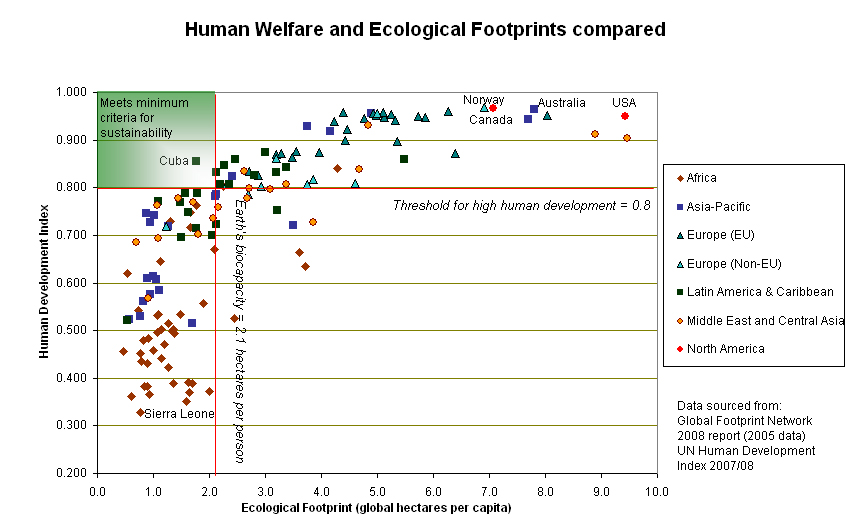This question asks about the correlation between political system and economic growth. A similar but distinctly different question: is there any correlation between political system and one of the various indices trying to quantify quality of life? I'm thinking about:
- Human Development Index
- Inequality-adjusted Human Development Index
- Quality of Life Index
- Happy Planet Index
Famously, the only country that has a high Human Development Index and a sustainable Ecological Footprint is Cuba:

That would argue in favour of the Cuban political and economic system as far as the tradeoff between planet and people is concerned, but famously, one data point is not enough. Are there any more in-depth statistics trying to correlate (and study the reasons for correlation) between political systems, human welfare, and ecological footprints?